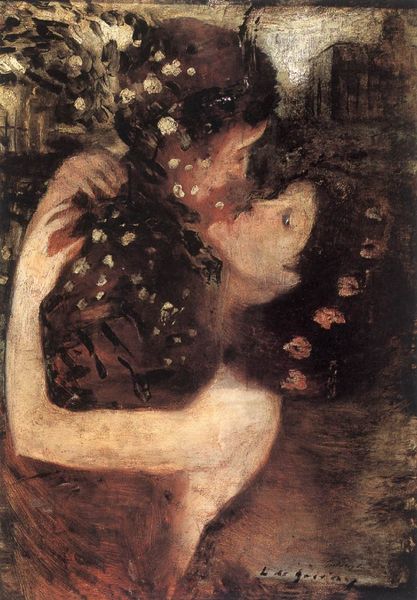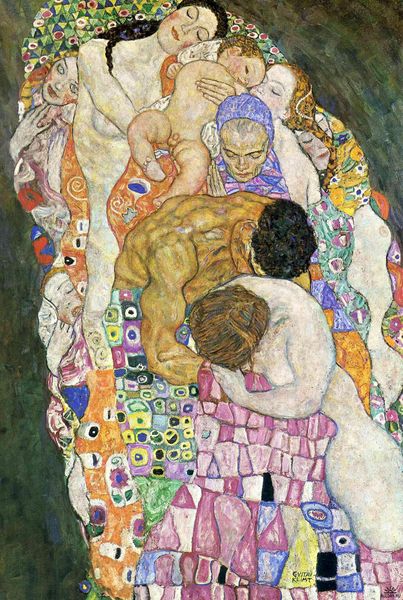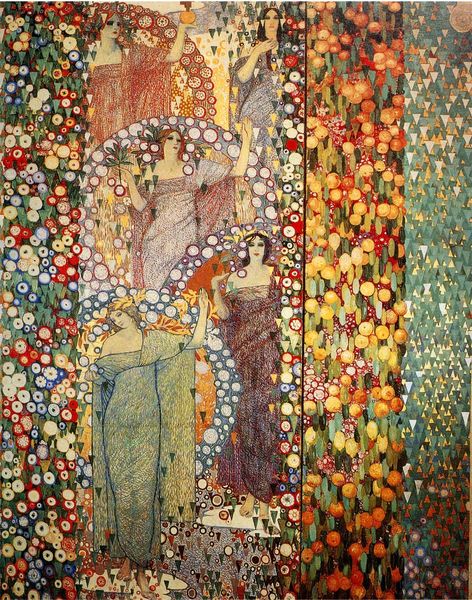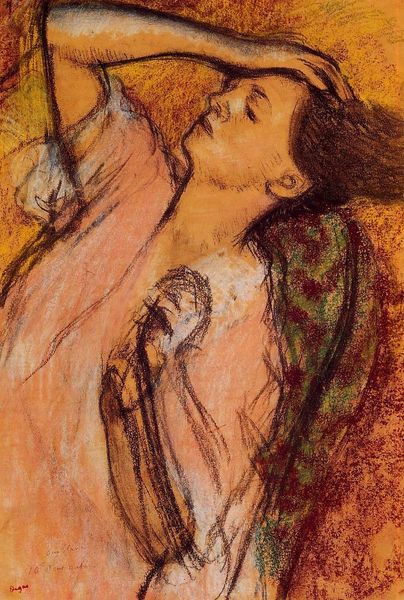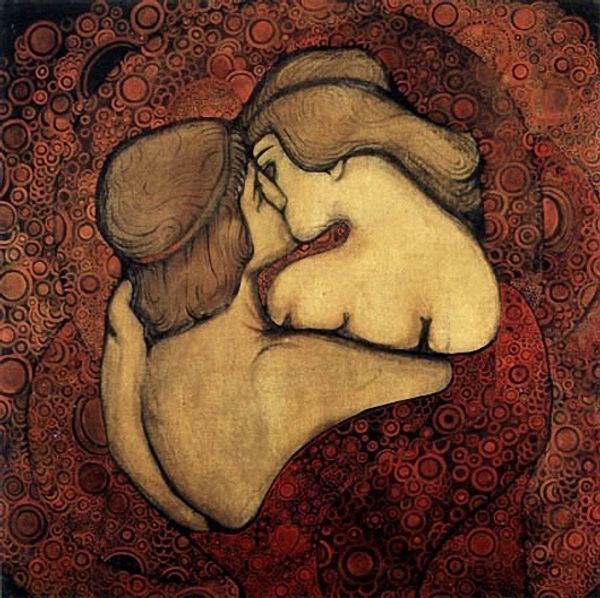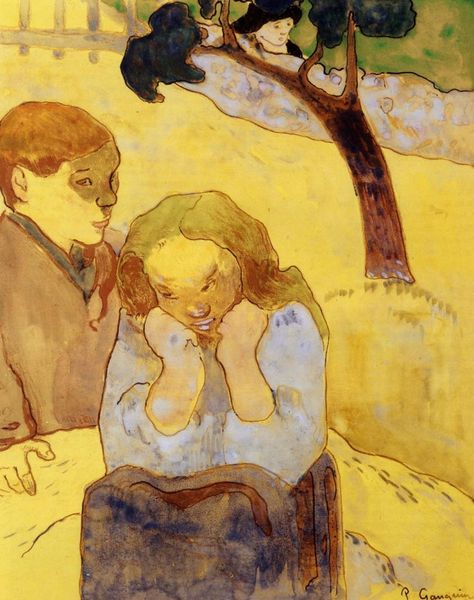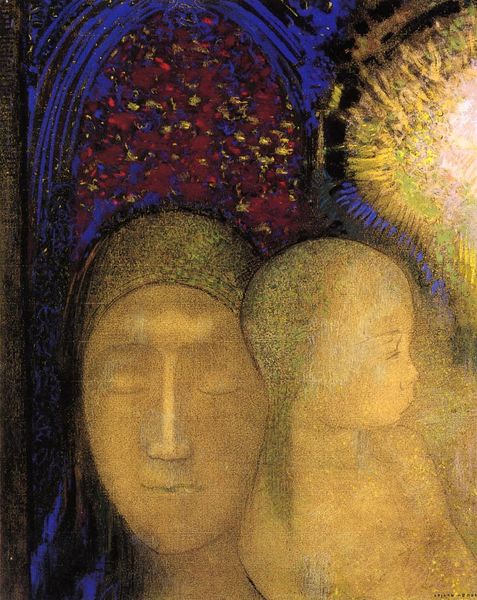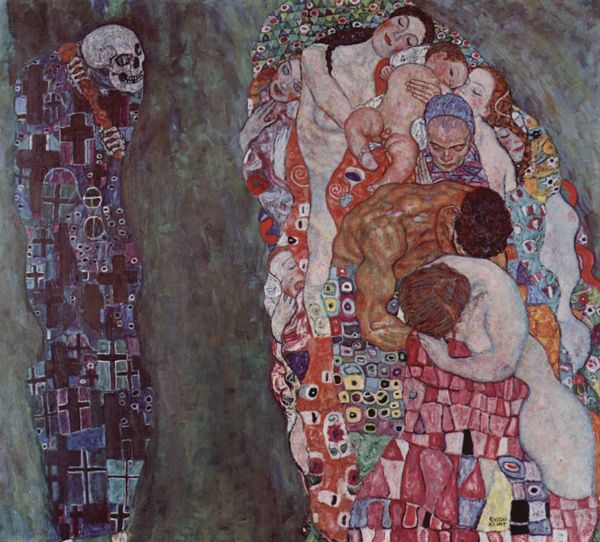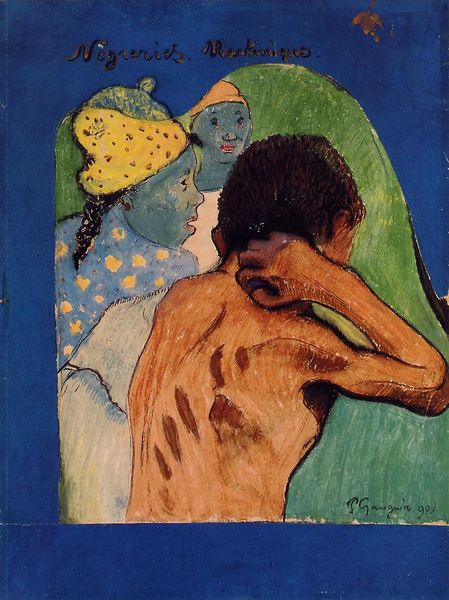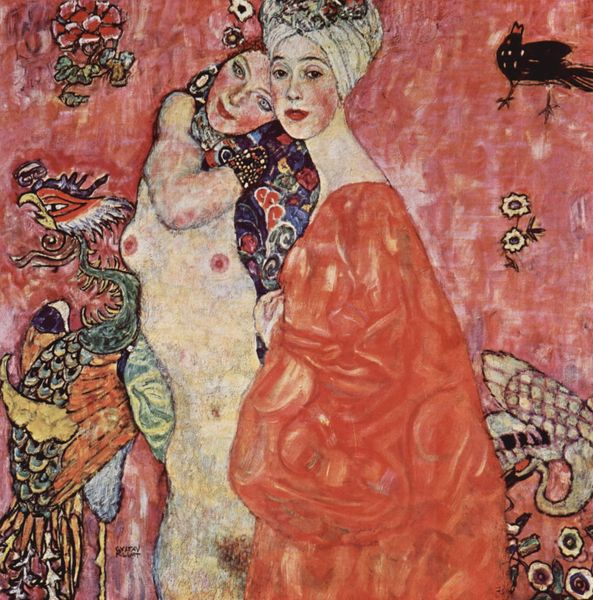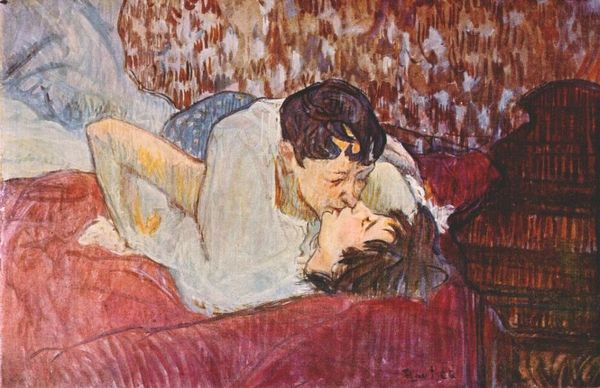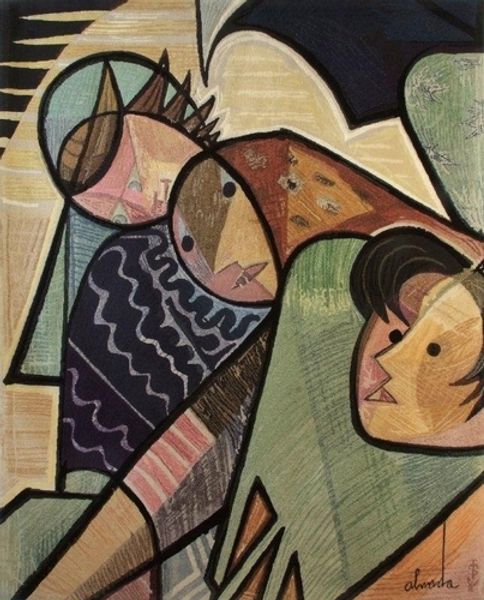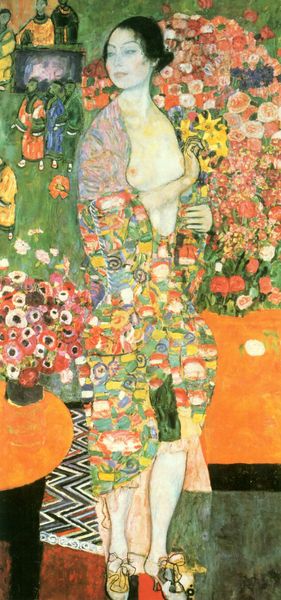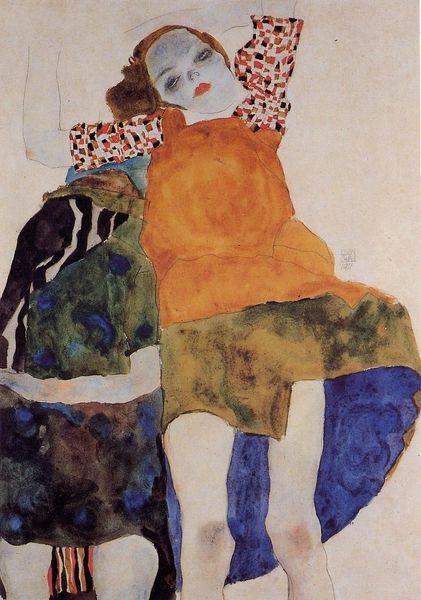
mixed-media, painting, oil-paint, gold
#
portrait
#
mixed-media
#
painting
#
oil-paint
#
gold
#
figuration
#
oil painting
#
symbolism
Dimensions: 180 x 180 cm
Copyright: Public domain
Curator: Let's examine Klimt's "The Kiss," created around 1908. It's an iconic oil and gold leaf painting currently housed in Vienna's Belvedere. The shimmering surface is striking. What immediately catches your eye? Editor: Well, the sheer opulence, the gold, it feels so… decadent. And the contrast between the rigid, rectangular patterns on the man’s robe versus the woman’s more fluid, organic shapes is really interesting. How do you interpret this work through a Materialist lens? Curator: For me, the painting transcends pure symbolism when we consider its making. Think of the labour involved in applying gold leaf, each tiny piece meticulously placed. It’s not just decorative, it reflects the burgeoning consumer culture of Vienna at the time, a desire for luxury goods. What about the patterns themselves? What might the geometric and floral distinctions tell us about production of these gendered garments and materials at the time? Editor: That's a great point. It also makes me think about the sources of the materials - where did the gold come from? Were those patterns referencing particular textile production methods? Curator: Exactly! This moves the conversation beyond the sentimental towards an investigation of industrial forces and the social hierarchy inherent in art production. The gold itself transforms from a symbol of sacredness into a commodity. Consider how that context of materialism and resource extraction impacts not just the visual elements of "The Kiss," but also our understanding of its historical relevance. It becomes a powerful statement of social aspiration and power as expressed through art and wealth, challenging traditional interpretations based solely on symbolic narratives. Editor: So, thinking about the materiality shifts the interpretation completely. It becomes less about idealized love and more about social and economic contexts shaping even the most romantic of images. Thank you for opening my eyes to new perspective! Curator: It's this blend of technique and cultural significance which brings such dynamism to this celebrated work, shifting it from the representational, towards the critical.
Comments
No comments
Be the first to comment and join the conversation on the ultimate creative platform.
